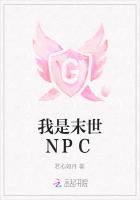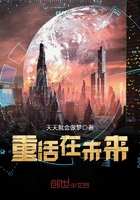Eager reactionaries outside Russia will no doubt point to non- partyism as a symptom of friendship for themselves.It is nothing of the sort.On all questions of the defense of the Republic the non-party voting is invariably solid with that of the Communists.The non-party men do not want Denikin.They do not want Baron Wrangel.They have never heard of Professor Struhve.They do not particularly like the Communists.They principally want to be left alone, and they principally fear any enforced continuation of war of any kind.If, in the course of time, they come to have a definite political programme, I think it notimpossible that they may turn into a new kind of constitutional democrat.That does not mean that they will have any use for M.Milukov or for a monarch with whom M.Milukov might be ready to supply them.The Constitution for which they will work will be that very Soviet Constitution which is now in abeyance, and the democracy which they associate with it will be that form of democracy which were it to be accurately observed in the present state of Russia, that Constitution would provide.The capitalist in Russia has long ago earned the position in which, according to the Constitution, he has a right to vote, since he has long ago ceased to be a capitalist.Supposing the Soviet Constitution were today to be literally applied, it would be found that practically no class except the priests would be excluded from the franchise.And when this agitation swells in volume, it will be an agitation extremely difficult to resist, supposing Russia to be at peace, so that there will be no valid excuse with which to meet it.These new constitutional democrats will be in the position of saying to the Communists, "Give us, without change, that very Constitution which you yourselves drew up." I think they will find many friends inside the Communist Party, particularly among those Communists who are also Trade Unionists.I heard something very like the arguments of this new variety of constitutional democrat in the Kremlin itself at an All-Russian Conference of the Communist Party.A workman, Sapronov, turned suddenly aside in a speech on quite another matter, and said with great violence that thepresent system was in danger of running to seed and turning into oligarchy, if not autocracy.Until the moment when he put his listeners against him by a personal attack on Lenin, there was no doubt that he had with him the sympathies of quite a considerable section of an exclusively Communist audience.
Given peace, given an approximate return to normal conditions, non- partyism may well profoundly modify the activities of the Communists.It would certainly be strong enough to prevent the rasher spirits among them from jeopardizing peace or from risking Russia's chance of convalescence for the sake of promoting in any way the growth of revolution abroad.Of course, so long as it is perfectly obvious thatSoviet Russia is attacked, no serious growth of non-partyism is to be expected, but it is obvious that any act of aggression on the part of the Soviet Government, once Russia had attained peace-which she has not known since 1914-would provide just the basis of angry discontent which might divide even the disciplined ranks of the Communists and give non- partyism an active, instead of a comparatively passive, backing throughout the country.
Non-partyism is already the peasants' way of expressing their aloofness from the revolution and, at the same time, their readiness to defend that revolution against anybody who attacks it from outside.Lenin, talking to me about the general attitude of the peasants, said: "Hegel wrote 'What is the People? The people is that part of the nation which does not know what it wants.' That is a good description of the Russian peasantry at the present time, and it applies equally well to your Arthur Hendersons and Sidney Webbs in England, and to all other people like yourself who want incompatible things.The peasantry are individualists, but they support us.We have, in some degree, to thank Kolchak and Denikin for that.They are in favor of the Soviet Government, but hanker after Free Trade, not understanding that the two things are self-contradictory.Of course, if they were a united political force they could swamp us, but they are disunited both in their interests and geographically.The interests of the poorer and middle class peasants are incontradiction to those of the rich peasant farmer who employs laborers.The poorer and middle class see that we support them against the rich peasant, and also see that he is ready to support what is obviously not in their interests." I said, "If State agriculture in Russia comes to be on a larger scale, will there not be a sort of proletarianization of the peasants so that, in the long run, their interests will come to be more or less identical with those of the workers in other than agricultural industry!" He replied, "Something in that direction is being done, but it will have to be done very carefully and must take a very long time.When we are getting many thousands of tractors from abroad, then something of the sort would become possible."Finally I asked him point blank, "Did he think theywould pull through far enough economically to be able to satisfy the needs of the peasantry before that same peasantry had organized a real political opposition that should overwhelm them!" Lenin laughed."If I could answer that question," he said, "I could answer everything, for on the answer to that question everything depends.I think we can.Yes, I think we can.But I do not know that we can."Non-partyism may well be the protoplasmic stage of the future political opposition of the peasants.















